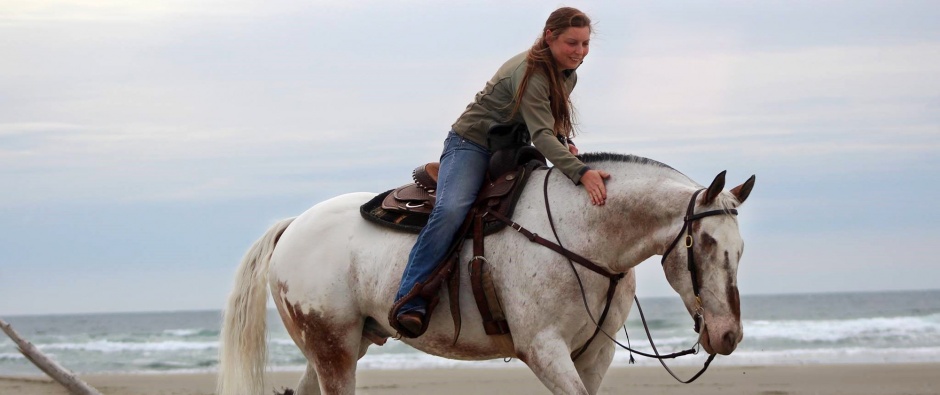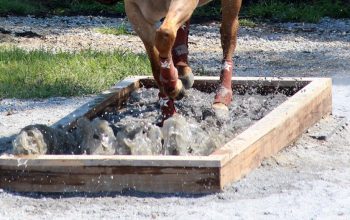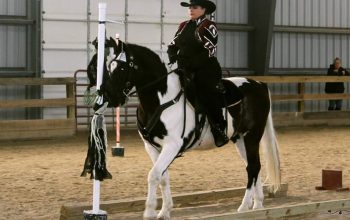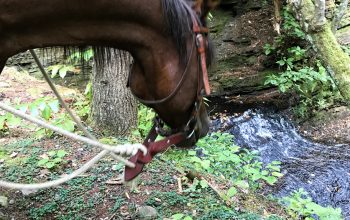From all over, they gather together to celebrate partnership with their horses.
People come to the sport of Working Equitation from a variety of backgrounds. Some leap into the sport from the world of three-day eventing or transition smoothly from the USDF dressage court to the Working Equitation arena. Others lope their way in from Western disciplines. Still others step into the sport from Competitive Trail, Obstacle Challenge, or Endurance racing. A number of riders have slid into Working Equitation from a previous background in reining. A few have joined the sport after dominating breed halter and movement classes and rolling over their competition in driving events. And not to be overlooked, a core group of Working Equitation enthusiasts have previously classified themselves as purely pleasure riders.

Oregon resident Morgan Wagner, whose Appaloosa gelding Endo the Blind has more Facebook followers than most human celebrities and the sponsorship of several companies (e.g., Purina and La Victoria Performance Horse products), was primarily a pleasure rider before she discovered Working Equitation. The sport gave her something to focus on, and that focus has paid off. She and Endo are regular performers and clinicians now at horse expos and rodeos. “It’s all about partnership,” Wagner explains, “that is really the heart of everything I do with Endo and the heart of Working Equitation.”
Wisconsin resident Heather Lekan regularly works cattle and competes in Cowboy Dressage and Obstacle Challenges on her Working Equitation horse Mizz Cora. “In addition to competitions,” Heather explains, “we regularly work cattle to improve our partnership and lateral work.”
Washington trainer Rob Zimmerman transitioned from a successful career in reining to Working Equitation, which is now the focus of his training and instructional program. “I love the sport,” Zimmerman says. “It is about the long-term development of the horse and rider. The foundation in Portuguese classical horsemanship, and the opportunity to host the Pedro Torres Academy of Working Equitation here in Washington and train with Head Instructor Nuno Matos has truly transformed my approach with horses.
It has made me a better rider and a better partner to my horses,” Robert Zimmerman

Texas WE rider Kiki Pantaze says her years of experience on the polocrosse field have helped her build a good foundation for Working Equitation. Several other top polocrosse riders’ success in Working Equitation suggests Pantaze may be on to something. Dori Johnson, who has competed internationally in the sport, and Prissy Rumel, a regular on the polocrosse field, have also made quite the names for themselves in Working Equitation. “I had a super time competing in the Working Equitation portion of the annual June Fest hosted by Rancho Del Lago in Mcdade, Texas,” Kiki Pantaze and her mare Sandhaven Late to the Party.

Jill Hamann-Bannister and her Quarter Horse gelding Omni’s Easy Jet made the transition from endurance racing to Working Equitation fairly recently. The success they have achieved (Jill is one of the first U.S. riders to earn her Bronze Medal in the sport) is testament that the partnership the two forged with their many miles of long-distance riding translates to harmony in other disciplines as well.

Oregon Working Equitation competitor, trainer, and judge Cari Schwartz brings a lifelong history as an eventer, hunter/jumper, and dressage rider (she won two Gold Medals in the Junior Olympics at both the 2’9 and 3’9 eventing divisions and was invited to compete in the 1980-1984 Olympic Trials in both show jumping and eventing) to the sport. This strong background may well help explain Schwartz’ success in Working Equitation, where she is the first U.S. rider to earn her Silver Medal, and a regular on the National Leaderboard.
Of course, not all who participate in Working Equitation come to the sport with competitive acclaim in other equestrian sports.

Some, like Susan McIntosh, from Washington State, focused more on exhibition work with their horses. McIntosh and her Friesian stallion Sir Ruben not only compete quite successfully in Working Equitation; they also have a solid fan base from their many exhibition performances over the years.
 Learn more about this exciting sport at www.WEUnited.us
Learn more about this exciting sport at www.WEUnited.us




